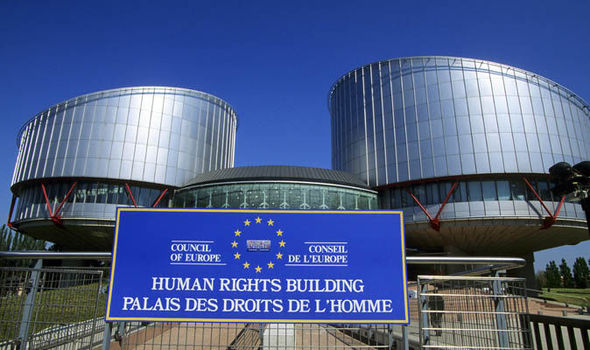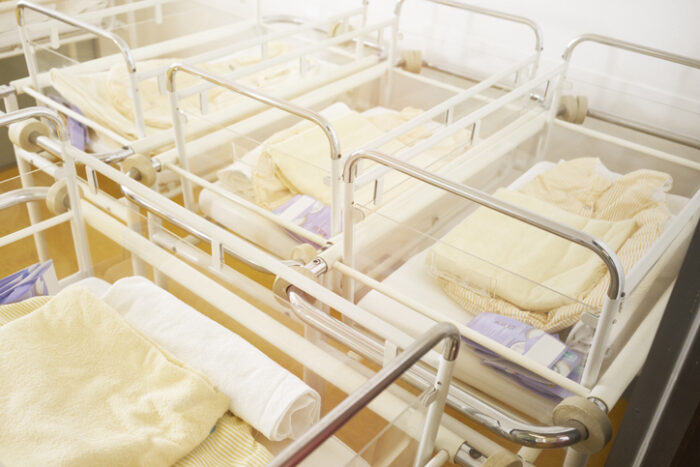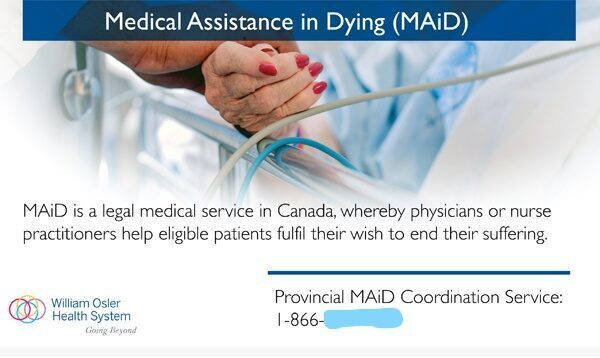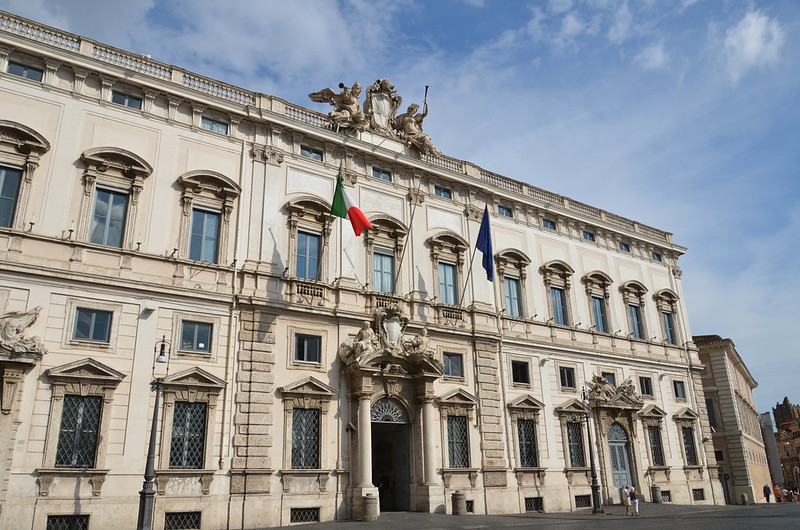
New research has underlined the view that family structure and stability matter for the welfare, happiness, and future outcomes of children.
According to a new report from the AEI-Brookings Working Group on Childhood in the United States, the evidence indicates that, on average, children who have (a) two parents who are committed to one another, (b) a stable home life, (c) more economic resources, and (d) the advantage of being intended or welcomed by their parents are more likely to flourish.
“In general, we believe that evidence suggests that marriage is the best path to the favorable outcomes highlighted above. Marriage is of course not the only path that allows children to succeed; many children raised by single parents and cohabiting parents thrive in life. Even so, in the United States marriage continues to be the institution most likely to combine the four benefits outlined above for the sake of children,” the report states.
The authors add: “Marriage matters to children. Having married parents typically means that children live in families with more resources, including more time with their parents, and with greater stability. While these factors in themselves point to a range of improved outcomes for children, the benefits of growing up in a family with married parents is more than a sum of these parts. Yet a long, steady decline in marriage rates over the past five decades means that more children are growing up in single-parent families. Today about one in four children ages 0–12 does not have married parents. While the decline in marriage has occurred across all demographics, more than one in three children whose mother has an education level of less than a college degree does not have married parents”.

Legislation to regulate Assisted Human Reproduction (AHR), including non-commercial surrogacy, has been approved by the Cabinet and published by the Government. Surrogacy in all forms is banned in some countries because it ‘splits’ motherhood into a birth mother and a genetic mother. Egg and sperm donation deliberate cut the tie between child and one or both of its biological parents.
The Bill will regulate all forms of AHR, including commonly-used procedures such as in-vitro fertilisation (IVF) and donor-assisted human reproduction (DAHR), as well as newer technologies such as embryo screening and surrogacy.
Minister for Health Stephen Donnelly said the Cabinet had last week approved the publication of the Health (Assisted Human Reproduction) Bill 2022 and its presentation to the Dáil.
While the legislation published today will regulate fertility clinics and domestic, non-commercial surrogacy it does not include any provisions on international surrogacy and a Special Joint Oireachtas Committee is being set up to examine this with the aim of issuing recommendations within three months. Ukraine and Russia are the only countries in Europe that permit commercial surrogacy.
The proposed law regulates domestic non-commercial surrogacy. ‘Reasonable expenses’ can be compensated through an informal agreement.
Minister Donnelly said the Bill would pave the way for AHR methods to be provided via public funds.

The European Court of Human Rights ruled that the Polish government has the right to refuse to change and re-issue a long-form birth certificate to a transgender person.
The applicant (52), born a woman but identifying as a man, had asked the Polish government for an updated long-form birth certificate to reflect his preferred gender identity, Court House News Service reports. He had already obtained an updated short-form birth certificate via court order after sex ‘reassignment’ surgery, which involves removing healthy sex organs.
The short-form certificate is more common and can be used for identification and documentation. The long-form certificate serves mainly as a civil record.
The government acted in line with its policy of not reissuing long-form birth certificates for people who underwent surgery. Warsaw argued that a long-form birth certificate is a record of the actual birth, which cannot be changed. Most European countries also use this policy.
The European Court of Human Rights now ruled that the policy is not discriminatory. According to the judges, a country has the right to maintain accurate birth records. In addition, the court ruled that keeping the original birth certificate does not meaningfully impact the life of the transgender male.
The judges state that he did not “demonstrate that he had suffered any sufficiently serious negative consequences or difficulties resulting from the fact that the sex assigned at birth is still visible in the form of an annotation on his full birth certificate”.
https://cne.news/artikel/740-european-court-polish-birth-certificate-not-discriminatory-against-transgender

The British Government also announced the results of a consultation which showed that 70% of submissions supported ending the temporary policy immediately.
This decision comes after multiple calls were made by MPs and medical professionals, for the Government to end, what has been proven to be a dangerous provision.
In England, emergency ambulance responses to complications arising from abortion related complications was shown to be three times higher since telemedicine was introduced. And research released in November 2021 revealed that more than 10,000 women had to receive hospital treatment following the use of medical abortion pills in England between April 2020 and September 2021.
Meanwhile, in Ireland, the Pro-Life Campaign have said the move was “very welcome news”.
They called on the Minister for Health Stephen Donnelly to “immediately announce a similar cessation of the practice here, on health and safety grounds and, in keeping with the promise of his predecessor that telemedicine ‘home abortions’ would come to an end at the same time that other Covid restrictions were lifted”.

People who do not have a religion, or who no longer practise, have been urged to mark ‘no religion’ on the upcoming census form.
Atheist group, the Humanist Association of Ireland (HAI) said this is the only way to ensure a fairer representation and a greater voice for the non-religious when key policy decisions such as the allocation of resources and funding are being made.
However, research shows that those who do not regularly practice a religion, often still believe in God, pray, have their children baptised etc.
HAI chief executive Jillian Brennan said she believed the 468,421 ‘no religion’ number in 2016 would have been higher if not for what she described as “the biased nature of the census form question that assumed a religious affiliation by asking ‘what is your religion’?”
This “leading religion question” had, in the past, “encouraged many people with no religious beliefs to tick a religious box purely out of cultural affiliation,” she said.
In response to lobbying from the HAI and other groups, the Census Advisory Group agreed to change the wording from “What is your religion, if any?” to the tick box “No Religion”, which is now also the first option on the religion question checklist. This will make comparisons with past years extremely difficult.

Dozens of doctors urged the Government on Wednesday to quickly settle terms for the new National Maternity Hospital (NMH), saying “misinformation” over the site’s ownership is “derailing” the project. This was followed on Thursday by a letter from Dublin City councillors repeating the same allegations the doctors vehemently denied.
The hospital will be built on the same site as St Vincent’s hospital, which already performs abortions. St Vincent’s private and public hospitals were founded by the Religious Sisters of Charity. They expressed a willingness to perform abortions even when still nominally under a Catholic ethos.
Senior medical figures including NMH master Prof Shane Higgins and three of his predecessors have said the deal now on the table includes “unbreakable legal stipulations” to guarantee that all procedures allowed under Irish law will be provided “including abortion, tubal ligation, gender affirming surgery and assisted reproduction”.
They went on to say that concerns raised about the new hospital on the St Vincent’s campus at Elm Park being “curtailed by any religious ethos are misleading and ill-informed” and it was “manifestly false” to suggest that only full State ownership of the site can assure “the avoidance of religious influence”.
Despite the Doctors’ claims, more than half of Dublin city’s councillors signed a letter on Thursday calling on the Minister for Health to reconsider plans to build the new hospital on private land at St Vincent’s Hospital.
In their letter the councillors express “grave concern” over the mooted plan as it would “result in a privately owned, religiously influenced hospital” where maternity and obstetric services such as abortions, IVF and gender reassignment surgery among others would not go ahead if the hospital was located on land owned by the Catholic Church.
The US Senate took the first steps toward a vote on a radically pro-abortion bill that aims to invalidate nearly every pro-life, state law in the country and ensure a legislative right to abortion up to birth in the event of the Supreme Court striking down the current abortion regime which is based solely on past judicial decisions.
The Democratic Senate majority leader Chuck Schumer moved the vote on the Women’s Health Protection Act last week.
The WHPA, backed by the Biden administration, effectively codifies abortion on demand throughout pregnancy, going so far as to nullify state pro-life laws, including those that protect unborn children after they’re able to survive outside the womb. The bill would forbid states from enacting even the most modest of abortion regulations such as informed-consent laws, waiting periods, ultrasound requirements, and bans on abortions chosen for discriminatory reasons (such as the unborn child’s sex or diagnosis with a disability).
The same measure has already passed the House on a nearly party-line vote, with only one Democrat, Henry Cueller of Texas, voting against it.

The US State of Vermont is considering a bill to expand assisted suicide by allowing it occur by ‘telemedicine’, which permits a doctor to prescribe lethal drugs without ever meeting the person.
It is another example of the assisted suicide lobby’s focus on expanding access to the process in states where it is already legal.
Alex Schadenberg, Executive Director, Euthanasia Prevention Coalition, says that for several years, the assisted suicide lobby has promoted the use of telemedicine for approving and prescribing lethal assisted suicide drugs.
He warns that the process eliminates the chance to discover that the person asking for it was misdiagnosed as, “If the doctor does not examine the person who requests assisted suicide then they are basing their assisted suicide approval solely on the person’s medical record”.
He adds: “Permitting assisted suicide by telemedicine in states where assisted suicide is legal may enable doctors to approve and prescribe out-of-state assisted suicides. Telemedicine approvals enables the assisted suicide lobby to set-up a national assisted suicide approval and prescribing center to permit assisted suicide nationally”.

Italy’s highest court has blocked a referendum on the issue of assisted suicide.
The constitutional court said it “deemed the referendum question inadmissible,” because if the referendum were to repeal the existing criminal law on assisted suicide, “the constitutionally necessary minimum protection of human life, in general, and with particular reference to weak and vulnerable persons, would not be preserved.”
Welcoming the ruling, the country’s Catholic bishops said it was “a very specific invitation to never marginalise the commitment of society, as a whole, to offer the support necessary to overcome or alleviate the situation of suffering or distress.”
The court said the proposed referendum did not give adequate protection to the weak and vulnerable.

Catholic schools in the US are seeing their biggest enrolment figures in decades which is being partly attributed to them staying open for almost all of the Covid-19 pandemic while public schools remained shut.
A report in the Wall Street Journal says that enrolment in U.S. Catholic schools increased by 62,000 students—3.8%—from autumn 2020 to autumn 2021. That’s the highest one-year increase recorded in two decades.
Catholic schools across all 50 states opened again in the academic year starting in autumn 2020 and have remained open since.
There are almost 1.7 million pupils in nearly 6,000 Catholic schools in the US.